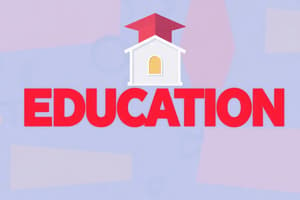Podcast
Questions and Answers
What did more than half of the respondents in a Wall Street Journal poll say about a bachelor’s degree?
What did more than half of the respondents in a Wall Street Journal poll say about a bachelor’s degree?
- It isn’t worth the cost (correct)
- It is essential for success
- It guarantees a high-paying job
- It leads to excessive debt
What did the recent New York Times Magazine cover story highlight about the new economics of higher ed?
What did the recent New York Times Magazine cover story highlight about the new economics of higher ed?
- It leads to immediate career success
- It guarantees high returns on investment
- It makes going to college a risky bet (correct)
- It ensures financial security
What did the research from the Federal Reserve Bank of St. Louis find regarding rising student-loan burdens?
What did the research from the Federal Reserve Bank of St. Louis find regarding rising student-loan burdens?
- They have increased the value of a four-year degree
- They have no impact on the value of a four-year degree
- They have lowered the value proposition of a four-year degree (correct)
- They have made a four-year degree more accessible
What does the text suggest about the college wage premium historically?
What does the text suggest about the college wage premium historically?
What does the text imply about the economic reality for most young people with a four-year college degree?
What does the text imply about the economic reality for most young people with a four-year college degree?
Flashcards are hidden until you start studying
Study Notes
Respondents' Opinions on Bachelor's Degree
- More than half of respondents in a Wall Street Journal poll believe a bachelor's degree is no longer necessary for success in today's job market.
New Economics of Higher Education
- The New York Times Magazine cover story emphasizes a shift in the value of a college degree, questioning its return on investment amid rising tuition costs and student debt.
Research on Student-Loan Burdens
- Research from the Federal Reserve Bank of St. Louis indicates that student-loan burdens have escalated, contributing to financial strain for graduates and affecting their ability to purchase homes or save for the future.
College Wage Premium Historically
- Traditionally, individuals with a college degree enjoyed a significant wage premium, earning substantially more than those without a degree, which has been a driving force for higher education enrollment.
Economic Reality for Young College Graduates
- The economic reality for most young people with a four-year college degree is challenging, with many graduates facing underemployment or jobs that do not require a degree, making it difficult to pay off student loans and achieve financial stability.
Studying That Suits You
Use AI to generate personalized quizzes and flashcards to suit your learning preferences.




